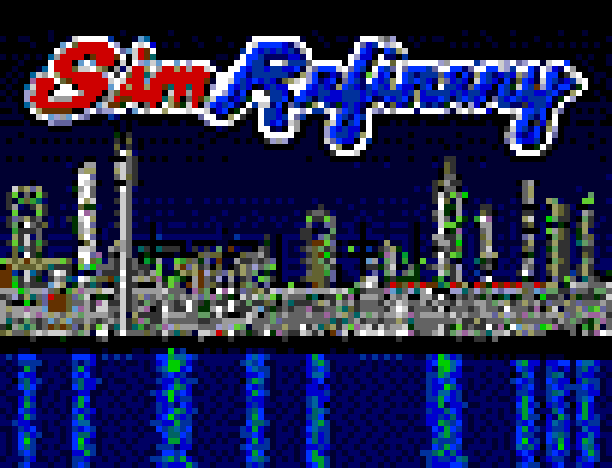The sprawling, must-read history of Maxis’ former “serious games” division

At Ars Technica, when we notice multiple staffers go silent at the same time to read another site’s article in its entirety, that flips a rare switch: time to tell our readers to click somewhere other than Ars (perish the thought) and give someone else some much-deserved clicks.
Today’s jaw-dropping, gotta-read-it candidate comes from a rarity in the modern publishing world: a self-published, years-in-the-making report on the history of a major, long-shuttered game studio from the glory days of early ’90s computer games. In other words, it’s our jam.
Specifically, this feature—written and researched by Washington, DC-based reporter, game historian, and librarian Phil “Shadsy” Salvador—covers the life and death of Maxis Business Simulations (MBS), which began life in 1992 as an official division of the game studio behind SimCity. After four years of reporting, Salvador has emerged with insights and quotes from every major player (meaning, yes, SimCity creator Will Wright is here). Crucially, the article includes a wealth of stories and insights gathered from MBS co-founder John Hiles, who passed away in 2016.
The MBS story begins with incredible serendipity. Hiles struggled to make a legitimate computer-driven business out of agent-based modeling as early as the mid-’80s, but his pie-in-the-sky thinking and infectious spirit kept him in search of an ideal partner. He found one in Maxis, whose debut PC game exploded so quickly that its staff struggled with requests from big businesses: they wanted their own SimCity-like games to be used for training and data analysis, and they were willing to pay.
With a handshake, Maxis got to offload a shaky business proposition—as Wright once said, “I know how pathetic [SimCity‘s] simulations are, really, compared to reality”—while Hiles finally got the thing his existing company, Delta Logic, was sorely missing: in a single word, “fun.”
-
Phil Salvador’s report dug up some of the only preserved gameplay from a launched Thinking Tools Inc. product: Project Challenge. Brace yourselves for some seriously dry content about office-management simulations.
-
It ain’t Math Blasters.Phil Salvador / Thinking Tools Inc
-
This simulation of an office meeting literally includes one of the staffers falling asleep.Phil Salvador / Thinking Tools Inc
-
Spoken dialogue pervades this tutorial: “Pay particular attention to any deliverables that show a projected completion date that’s beyond the planned completion date.” Hot gamer stats, right there.Phil Salvador / Thinking Tools Inc
-
Beef up those interpersonal skills.Phil Salvador / Thinking Tools Inc
-
This boat showed up in a few TT Inc. releases. “It’s smooth sailing!”Phil Salvador / Thinking Tools Inc
-
More project budget maintenance!Phil Salvador / Thinking Tools Inc
-
Aw, shucks. Our princess is in another castle. And that princess is an executive coming into your office to say, “I’ve already notified personnel” about your poor management performance.Phil Salvador / Thinking Tools Inc
Thus, Maxis acquired and renamed Delta Logic to Maxis Business Simulations, which operated for two years before spinning off to its own company (renamed Thinking Tools Inc.). And Salvador does a brilliant job connecting the throughline of everything relevant here: the rising hunger for PC video games, the mix of curiosity and skepticism applied to computer “simulation” games by larger industries, and the venture capital-driven march toward profits that ultimately doomed the company that MBS eventually became.
Sadly, it also confirms why we have seen so little of MBS/Thinking Tools’ output: because the remaining staffers, having been screwed out of things like a tidy transition to a new company or severance packages, marked the end of Thinking Tools’ existence in late 1998 with a massive bonfire. Every design document, every floppy disk, and every proof of their output went up in flames in Monterey, California. (Our game-archivist brains went into convulsions upon seeing this detail, but then our bureaucracy-hating hearts figuratively poured some gas onto the fire in solidarity.)
Though the above gallery includes examples of how desert-dry Thinking Tools’ software turned out to be, the full, feature-length story is a lot less dry than its subject matter might lead you to believe. Carve some time to check out Salvador’s incredible report, then hop from there to read other deep-dive, software-history content he’s posted at his personal site, Obscuritory. https://arstechnica.com/?p=1677216